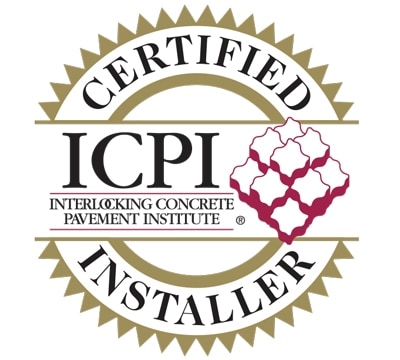
Questions to Ask a Hardscape Contractor
A successful patio, walkway or retaining wall installation can provide many years of enjoyment. However, choosing a professional hardscape contractor can be challenging. Ideally, you want someone you can trust, who will listen to you, and shares your vision. So how do you choose a hardscape contractor who will ensure a positive experience from start to finish. Here are some technical questions and topics you should ask of any hardscape contractor that will be working on your project.
1. Paver Base Preparation Is a Key Factor in Every Paver Project.
Ask how they prepare the base? Whitehouse Landscaping builds their projects on undisturbed, compacted soil and segregated from the base materials with Geotextile fabric. The materials that are used to support a hardscape project are crucial.
2. Ask What Is Used for the Base Materials and What Is the Compaction Process?
Whitehouse Landscaping uses granular stone base with 2A modified stone. Compaction of the base layer should be done as the base is being constructed, preferably every 2-3’ of base installed.
3. How Much Base Materials Do You Use (Minimum for Walk or Patio)?
Whitehouse Landscaping uses a minimum of 6” of properly compacted base materials for patios and walks.
4. Do You Use Geotextile Fabric and Where?
Whitehouse Landscaping uses Geotextile between the subsoil and the base gravel to prevent intermixing. Geotextile fabric should also be used at any vertical surface where washout of base gravel or sand could be a problem as in retaining walls.
5. Do You Use Plastic or Concrete Edge Restraint and Why?
Whitehouse Landscaping uses vinyl restraints and steel spikes in our climate. Concrete is unacceptable because of it cracking in the winter.
6. What type of drainage Do You Plan for with a Patio or Retaining Wall?
Whitehouse Landscaping makes sure there’s a minimum of 1% slope or greater away from house structures. Internal drainage may be necessary in raised patios and retaining walls to prevent static water pressure behind the wall. Drainage is a huge factor that needs to be included in your hardscape plan. Your contractor should know how to install drainage solutions that will work best for your space.
7. What Type of Jointing Sand Do You Use in Hardscape Construction?
Whitehouse Landscaping uses polymeric sand. The benefit of polymeric sand is that it helps prevent weeds from germinating and ant hills from forming in the pavers because it sets like mortar, but remains flexible.
8. Do You Use Geogrid Reinforcement in Retaining Walls?
Whitehouse Landscaping uses this reinforcement especially when building retaining walls over 4’ in height although it may be required for shorter walls as well. The geogrid locks into the face of the wall and runs back into the slope, thereby using the weight of the wall and the backfill as an anchor to stabilize the wall.
9. Ask Your Hardscape Contractor If a Permit Is Required?
Most covered structures, decks and pools will require a permit. Beginning a project without a permit could have an unfortunate result.
10. Inquire about the Hardscape Contractor’s Insurance and Workers’ Compensation.
You certainly don’t want to be liable for any damages or injuries that occur on your property. Most hardscapers have coverage but it’s worth checking.
Whitehouse Landscaping has been in business for over 20 years and we have the necessary certifications and re-educate ourselves about the latest technology to assure you that your project will be done right. Check out our Portfolio or read about our Design Process and especially our 3D Design capability. We are confident that our skill, design, and professionalism will exceed your expectations

